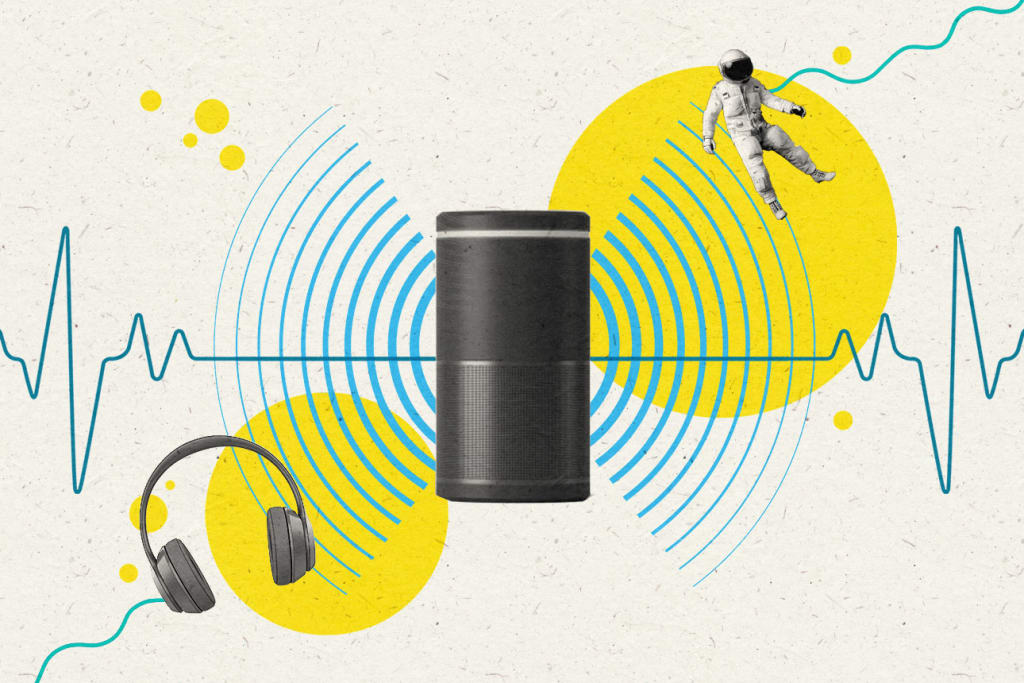Listening Machines: The New Frontier in AI Perception
A New Dimension: AI Learns to Perceive Spaces Through Sound

Ever stood in a massive cathedral and just... listened? The way sound bounces around is wild, right? It's like the building is talking to you. Well, some smartypants researchers at MIT and IBM thought, "Hey, what if we could teach computers to do that too?" And boom, here we are.
Sounds Like Science (Fiction?)
So picture this: You're in a room, blindfolded. You clap your hands once. From that single clap, you can pretty much figure out if you're in a tiny closet or a giant gymnasium. Cool, huh? That's basically what these researchers are teaching AI to do, minus the blindfold and the clapping.
They've cooked up this fancy machine learning model that can "hear" a room. It's not just listening to sounds, though. It's figuring out how those sounds travel through the space. It's like giving a computer a pair of super-ears.
One of the brainiacs behind this, Yilun Du (cool name, by the way), says most AI folks have been all about the visuals. But us humans? We're not just eyeballs on legs. We've got ears too, and they're pretty darn useful for understanding the world around us.
The Sound and the Fury (of Coding)
Now, teaching a computer to "see" with sound isn't as easy as it sounds (pun totally intended). There's this thing called "photometric consistency" that helps with visual AI stuff. Basically, if you look at a coffee mug from different angles, it still looks like a coffee mug. But sound? That's a whole other ball game.
Move a few steps in a room, and what you hear can change completely. Maybe there's a wall blocking the sound now, or you're closer to a window that's letting in street noise. It's enough to give an AI a headache (if they had heads, that is).
But our intrepid researchers didn't give up. They taught their AI two important lessons about sound:
1. If you and a loudspeaker swap places, the sound doesn't change. (They call this "reciprocal nature of sound" because scientists love fancy terms.)
2. What you hear depends a lot on what's right around you. (They probably could have just asked any teenager with headphones about this one.)
From Ears to Eyes (The AI Glow-Up)
Here's where it gets really cool. All this sound stuff? It's actually helping AI see better too. When they fed this audio info into visual AI models, the computers got better at understanding 3D spaces.
It's like when you're fumbling around in a dark room. Your ears help you figure out where the walls are before you smack into them. Same idea, but for robots. (Note to self: Patent robot helmets before they start bumping into stuff.)
The Future Sounds Bright (and Loud)
So what can we do with these new super-hearing AIs? The possibilities are pretty awesome:
1. Virtual reality that sounds as real as it looks.
2. Underwater robots that can "see" with sound. (Finding Nemo, but make it tech.)
3. Buildings designed to sound as good as they look.
4. City planning that considers noise pollution. (Finally, peace and quiet!)
5. Super-smart hearing aids that can focus on the important sounds.
The researchers are dreaming big. They want to scale this up to handle entire cities. Imagine an AI that could model how sound travels through New York City. It'd probably need therapy after that.
The Sound of Progress
Look, or should I say, listen – this is pretty groundbreaking stuff. We're teaching machines to use their "ears" to understand the world better. It's not quite like human hearing, but in some ways, it might end up being even better.
Who knows? Maybe one day we'll have AIs that can taste, smell, and feel too. Although, let's be honest, an AI with a sense of taste would probably tell us our cooking sucks.
For now, though, let's appreciate this audio revolution in AI. It's not just noise – it's the sound of progress. And who knows? The next time you talk to your smart home assistant, it might just compliment your room's acoustics.
Now, if you'll excuse me, I'm off to clap in different rooms of my house. You know, for science.
About the Creator
prince sharma
Avid enthusiast of technology, history, and horror. Embraces the fusion of imagination and technical expertise to bring visionary ideas to life.
Enjoyed the story? Support the Creator.
Subscribe for free to receive all their stories in your feed. You could also pledge your support or give them a one-off tip, letting them know you appreciate their work.





Comments (2)
Liked it.
nice article